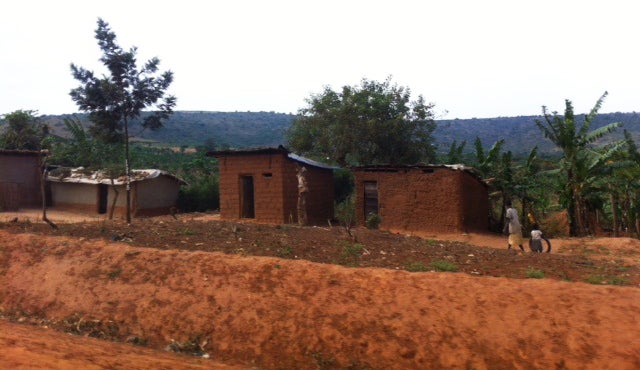Women living in a refugee camp in Uganda are at an increased risk of sexual and gender-based violence, including rape, early marriage and domestic abuse, says a University of Waterloo researcher.
Suzan Ilcan, a professor in the Department of Sociology and Legal Studies, and Marcia Oliver, an assistant professor at Wilfrid Laurier University, have conducted research in the Nakivale Refugee Settlement where they were informed by several refugees of the prevalence of such violence around the settlement.

“They cited many examples of what has happened to women when they leave the settlement in search of firewood for cooking or to sell goods, for example,” says Ilcan, also of the Balsillie School of International Affairs. “We were told that during this time some women have been sexually assaulted, stabbed, and left without an arm or limb.”
One refugee emphasized the dangerousness associated with leaving the settlement: “When (women) go beyond the settlement, they are with the nationals. And they look at the refugees as an animal…So when you come to collect firewood, they consider it to be a person destroying the environment. Women are suffering. They are raping them from outside.”
Ilcan and Oliver are studying the use of a “self-reliance” strategy in settlements, a strategy that encourages refugees to become participants in market activities to meet their basic needs and become self-sufficient.
"Self-reliance" strategies can put refugees at risk
“But this strategy is directed at highly vulnerable populations, namely refugees, who have confronted emotional trauma after having escaped massive civil conflict in their home country. Upon their arrival in Nakivale, they face insufficient training, education, and social networks, as well as inadequate state and aid support. Self-reliance strategies can have counter effects,” Ilcan says.
Oliver stresses that “they can contribute to the further marginalization of women and young girls as they face greater insecurities as they participate in the market, earn an income, and care for family members. In the words of one refugee: “Sometimes when our wives or ladies go for making business around the hills (outside of Nakivale), they face big problems. We cannot talk about this a lot.”
A key factor undermining refugees’ capacities for self-reliance and contributing to women’s vulnerability is the government’s encampment policy, which requires refugees to live in settlements such as Nakivale. Such policies restrict refugee movement, create social tensions between refugees and local communities, and make it difficult for refugees to start their own business. With few jobs available within camps and settlements, refugees struggle to meet their most basic needs and are often forced to pursue riskier livelihood strategies such as women marrying young or engaging in sex work.
Oliver notes that the encampment of refugees is “fundamentally at odds with human rights and dignity.” However, alternative social justice approaches come with their own set of challenges.
“Perhaps the most significant barrier to more social justice oriented approaches to displacement is the lack of political will for some states to extend refugees full citizenship status and accompanying rights that will end their exile and help them to rebuild their lives,” says Oliver.
Originally posted on Waterloo Stories.